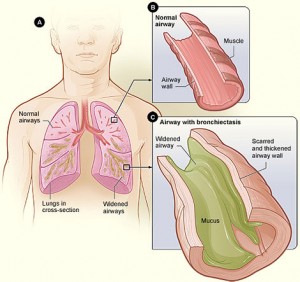 At Canada Pharmacy, customers’ health is always put into perspective, instead of the company just trying to maximize profits as many others do. As a result, they try to make website a place where you can do a lot more than just shop for pharmaceuticals. They believe that it is highly important to know how can you maintain your health in good condition, and would like to help you do that. Of course, you could always purchase high-quality medications from us and treat most medical conditions, but isn’t it better to prevent as many health problems as possible?
At Canada Pharmacy, customers’ health is always put into perspective, instead of the company just trying to maximize profits as many others do. As a result, they try to make website a place where you can do a lot more than just shop for pharmaceuticals. They believe that it is highly important to know how can you maintain your health in good condition, and would like to help you do that. Of course, you could always purchase high-quality medications from us and treat most medical conditions, but isn’t it better to prevent as many health problems as possible?
The world around us sometimes gives us too much to deal with, so it is important to know how to relax, forget your problems for a while, and get some rest. However, it is not as simple as it might seem, and a healthy lifestyle is a lot more than just having a well-balanced diet and playing sports or exercising. The advice that you might find on some other websites is known to be controversial or confusing sometimes, but you can forget about that, because My Canadian Pharmacy experts are going to dispel the most popular health myths for you and give you some valuable advice that might motivate you to change your lifestyle completely.
Since there are many aspects of health, the questions will be sorted into several categories, such as:
- Sport, fitness and working out
- Most common diseases
- Diets and weight loss
- Sex and relationships
- Mental health and well-being
Here’s a taste of what you are going to get from My Canadian Pharmacy Experts.
-
Sports, fitness and working out
Do I have to measure my heart rate while exercising?
The answer is “no”. Unless you have been told to do so by a doctor because of your cardiac problems, there is hardly any need to know your exact heart rate during workout sessions. If you are a professional runner, cyclist or athlete, you might want to track your heart rate for the sake of making the most of your training sessions. If you’re just exercising to be fit and healthy, you won’t benefit from tracking your heart rate.
Some people might argue that it is useful to know their heart rate while exercising so that they can compare it with the “ideal” value. This value can be calculated according to several formulas, the most popular of which is “220 – one’s age in years”. However, few people are aware that these formulas don’t necessarily produce an accurate and representative value.
Conclusion: generally, there is no need to monitor your heartbeat when you exercise unless you are suffering from cardiac problems, and overstraining yourself might lead to dangerous consequences.
-
Most common diseases
Do younger women face a smaller risk of heart diseases?
The answer is “no”. The stereotype that women aged under forty are highly unlikely to suffer from heart problems is persistent, but nonetheless false. While it is true that heart diseases tend to affect men at an age younger than women (about 10 years more of a “safety zone” for women, according to statistical data), the influence of risk factors is undeniably stronger as compared to the age factor. If a young woman is obese, has type II diabetes or hypertension (the most common risk factors for heart diseases), she is still likely to face cardiac problems. Women tend to be more resilient to heart diseases, particularly heart attacks, partly due to estrogen, which is known to be capable of preventing cardiovascular diseases. However, with the risk factors becoming more and more common even in younger generations, estrogen cannot be a safety guarantee for young women.
Conclusion: women and men are likely to start experiencing cardiac problems after their sixties and fifties, respectively, which does mean that women are less susceptible to heart diseases. However, younger women who are exposed to risk factors are as likely to suffer from cardiovascular diseases as the older generations.
-
Diets and weight loss
I want to lose weight, should I go on a diet?

The answer to this eternal question is “no”. Some diets (mind you, not all of them) could indeed help you lose weight, maybe even in rather short terms. The problem is, it is not easy for many people to give up on their favorite foods, and when they finally see the desired number on the scales, they are very likely to forget about the diet. In many such cases, people resume their eating habits and quickly regain the weight lost that took such great effort. Another drawback of many diets is the fact that they are unbalanced, and often deprive your organism of many substances that it needs to function normally.
Conclusion: even though diets might turn out to be effective, they can also be a rather unhealthy way of losing weight, as it is stressful for the body. You are more likely to benefit from a complex lifestyle change: modify your eating habits to achieve well-balanced nutrition, join a gym, try to be as active as you can and always get enough sleep.
-
Sex and relationships
Is it always necessary to bring an argument to an end before going to bed?
The answer is “no”. The stereotype that you should try to resolve everything that bothers you before you go to bed might be practical, but sometimes, it will be a lot more detrimental to your mental health to continue an argument than to have a rest and possibly start a calmer discussion next morning. You might need some time to analyse your behaviour, and it might just so happen that your point of view will change completely by morning. The same is true for your partner. Even if you’re so upset or angry that you can’t fall asleep, it might be better to cool down than to go on with the argument when you and your partner are already so exhausted from the fight that any chance for objectivity on either side is long gone.
Conclusion: sometimes, putting an argument off till next morning is a much better option than taking it further into the night. If you happen to fight over some petty things, during such pauses, you might realize that they weren’t worth it at all.
-
Mental health and well-being
Are most mental illnesses untreatable?
The answer is “no” again. Mental illnesses are rather common (about 20% of the Earth’s population have suffered from a mental health disorder at least once in their lives), but fortunately, the majority of them can be addressed. Even if the condition is not completely cured, it is often possible to relieve its symptoms and stop the disorder from progressing. It is highly important that mental health patients acknowledge their problem and do their best to deal with it. Support from their friends and family often means a lot to them, and just by being a good listener and showing some empathy, you might be able to help your friend or relative get back on track faster.
Conclusion: mental illnesses are obviously very complicated and hard to analyse, but medical science has been able to come up with some ways of treating them. People diagnosed with a mental disorder won’t have to remain in that condition for the rest of their lives, as there is a variety of therapies available to address their mental health issues.
Article by Andrew Simons MD from My Canadian Pharmacy Team: https://www.mycanadianpharmacypro.com



